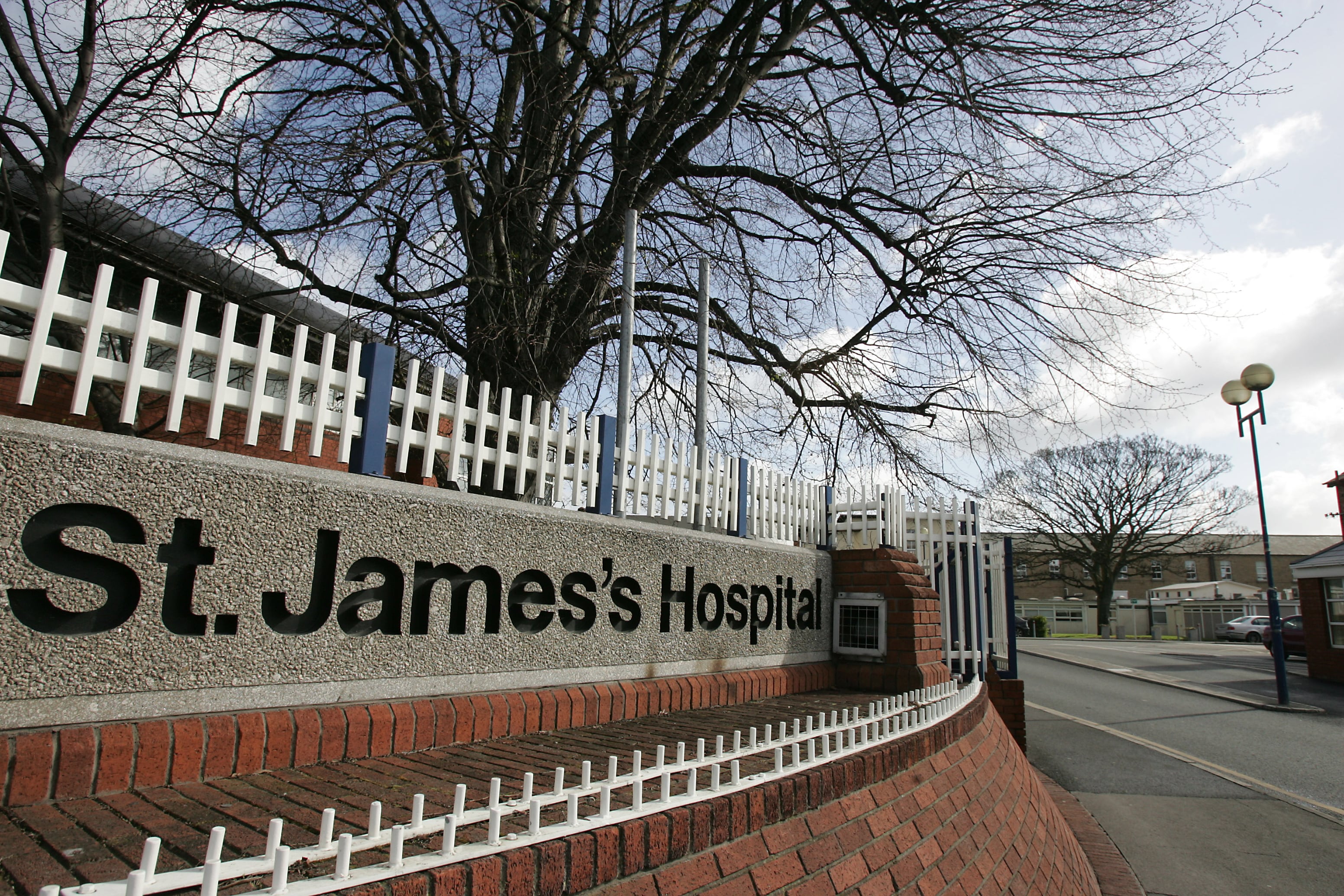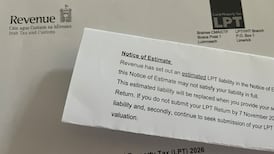Garda whistleblower Lois West said she was forced to take leave from work because she was “terrified” of a new civilian official installed as the head of the Garda analysis bureau after she testified to the Oireachtas about errors in homicide data.
Ms West told the Workplace Relations Commission (WRC) on Thursday that she later learned an assistant commissioner had gone as far as searching the apartment of the newly hired head of the Garda Siochána Analysis Service (GSAS) after he was seen leaving the office with a “bulging” rucksack.
Her lawyers say she regarded the civilian official, Laurence Scanlan, as “unstable and a national security risk” – but that Garda chiefs penalised Ms West by failing to put any protective measures in place after she repeatedly complained about him.
Ms West, who was joint deputy head of GSAS at the time, is pursuing complaints under the Protected Disclosures Act 2014; the Safety, Health and Welfare at Work Act 2005; and the Payment of Wages Act 1991 against the Commissioner of An Garda Síochána, the Government and the Minister for Public Expenditure and Reform.
READ MORE
A barrister acting for Ms West has said she has been subject to a “stream of penalisation” ever since she and a colleague, Laura Galligan, first raised concerns about homicides being “misclassified” by the force.
They went public with their disclosures at an Oireachtas justice committee meeting in the spring of 2018.
Ms West said the level of work required of her after the departure of the original head of GSAS brought her to the point of “burnout” by the time a new GSAS chief, Laurence Scanlan, was appointed in June 2019.
“Things started to deteriorate quite rapidly after Mr Scanlan arrived,” she said. “I really did believe there was a kind of an instability there,” she added.
“He’d be telling me that he wanted to retire to Colorado to keep pigs ‘because pigs eat people, you know, apart from the hair and the nails which come out in their s**t’,” Ms West said.
She said Mr Scanlan “seemed to fawn over me” and “became overfamiliar very quickly”.
She described Mr Scanlan coming to her office on one occasion and telling her: ‘Laurie wants hot chocolate. Laurie wants Lois to buy him hot chocolate.
“[It was] this childlike, wanting to be mothered kind of thing. It wasn’t optional. When I said I was busy, [I] was told [I] was going,” she said.
She said this pattern deteriorated to the point where she felt she was “being stalked in my own office”, as Mr Scanlan “would come in and sit himself down, which blocked my own exit ... and sit there for maybe three hours”, she said.
“It wasn’t sitting discussing work matters ... it was absolute nonsense,” she said. Mr Scanlan, she said, had told her his background spanned service in the police and the military as well as being a professional footballer and rugby player.
“He claimed when he’d been in the military to have shot 27 people,” she added. “I was trying to get my work done,” she said.
Other comments by Mr Scanlan, the WRC was told, included telling her to “find someone who’s got a real hard-on for that kind of stuff” in relation to the assignment of a task, and telling her: “I want a blonde with big tits, but that’s never going to happen.”
Ms West said the latter comment had been made to her in her own office and was a reference to her.
“My whole personal space was invaded. I couldn’t get a break from this guy,” she said.
The tribunal heard she approached Assistant Commissioner Michael O’Sullivan in August that year about Mr Scanlan, and went to him again with another GSAS colleague, Jacintha Dowling, the following month.
Ms Dowling gave evidence during the original hearings on the case last March, but has since passed away.
“To give a measure of where everyone was at in relation to Mr Scanlan, the staff were actively saying: ‘This guy is really unstable, I can honestly see him taking us hostage in the building and us waving placards out the window to RTÉ’,” Ms West said.
Ms West said she and Ms Dowling had been told by Mr Scanlan that he was “getting through a bottle of bourbon every night” and that she had “the impression he was coming in hungover in a very bad mood”.
Ms West said Assistant Commissioner O’Sullivan called Mr Scanlan to a meeting on a Monday morning, September 16th, 2019, after which Mr Scanlan returned to the GSAS offices, “let loose” on her and Ms Dowling, and then refused to participate in a planned event with new staff.
After Ms West and Ms Dowling left to work from home that afternoon, the complainant said her understanding was that Mr Scanlan then left the office “with a rucksack on his back, bulging”.
“The staff weren’t under any illusion that he was gone,” she said. Ms West said Mr Scanlan then failed to attend work the following morning, Tuesday, September 17th.
She said it “became clear” that Mr Scanlan’s failure to turn up to work “sent panic through Assistant Commissioner O’Sullivan”.
The senior officer “promptly got a chief superintendent to accompany him to Mr Scanlan’s apartment”. She said a personal number for the GSAS chief was sought from one of her staff.
Then the superintendent and the assistant commissioner turned up at the GSAS offices, the WRC heard. “For some reason they were going through his office hoping there might be a key for his apartment,” she said.
She said it became clear to her upon approaching the officers “that they had a very serious welfare concern” for Mr Scanlan.
“It caused great concern in the office, because even though this guy was a wrecking ball, causing problems, harassing people, sexually harassing me, we didn’t want any harm to come to him,” she said.
Ms West said she took sick leave after being told by Assistant Commissioner O’Sullivan in the wake of these occurrences that Mr Scanlan would be back at work that Friday.
“I felt really unsafe because of his volatility and the sexual nature of his behaviour and I felt really terrified that it was going to escalate,” she said.
Ms West said she only learned at a later stage, following a consultant’s report, that Assistant Commissioner O’Sullivan, unknown to Mr Scanlan, had entered the GSAS chief’s home on the morning of Tuesday, September 17th, that year to “conduct a thorough search”.
The report noted that the men “couldn’t find any alcohol bottles or anything of that nature”, she said. Ms West said she thought the assistant commissioner’s actions were “illegal” and “abnormal in the extreme”.
On Thursday, counsel for the State Lorna Lynch SC said that the allegations of harassment and sexual harassment against Mr Scanlan were “unproven allegations” and that it was “extremely important that it be reported that there were no findings in that regard”.
Ms West’s barrister, David Byrnes, said his client would argue that her employer “never investigated it” – noting that a subsequent internal report “criticised the fact there were no protective measures put in place” by Garda management at the time.
The case is continuing on Friday before adjudication officer Penelope McGrath.












